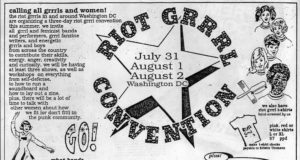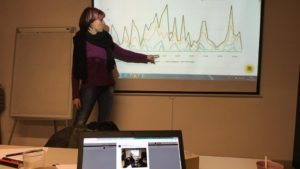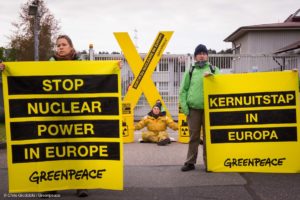On June 15th, 2020, the Maui County Council became the first county in the United States to pass a feminist economic recovery plan.
The organisers behind this legislation introduced state-wide legislation, and hope that it will influence other feminist advocacy efforts and coronavirus response policies across the country.
This plan includes special emergency funds for marginalised groups, including undocumented immigrant women, free, publicly-funded child care for all essential workers, domestic workers, women with disabilities and sex-trafficking survivors, a universal basic income, waived co-payments for COVID19 tests and treatment, including for incarcerated women, a $24.80/hour minimum wage set to the needs of single mothers and more.
The process behind the first-ever Feminist COVID Economic Recovery plan, also known as Building Bridges, Not Walking on Backs, offers a blueprint for other grassroots organisers to build allies, creative coalitions, and design policies that centre marginalised groups and have built in participatory processes.
Hawai’i is the first state in the United States to propose a plan to heal the damage COVID-19 has done with an explicitly feminist perspective. Khara Jabola-Carolus, the executive director of Hawai’i’s State Commission on the Status of Women, initiated this plan – but she wasn’t alone.
The Micronesian Women’s Taskforce, the Hawaii Feminist COVID-19 Recovery Team, and Healthy Mothers Healthy Babies all contributed to its formation and vision for a just and comprehensive recovery.
However, the people behind the vision of the plan didn’t decide everything – they laid the foundation for an inclusive and participatory process to share power.
The Feminist COVID Recovery Team and immediate network (@Hawai’iCSW on Twitter) is composed of 40 women from all areas of civic life – from politics and community organising, to science and care provision. They continue to seek input from those particularly those hit hardest by COVID and the resulting economic fallout. Both Jabola-Carolus, who has strong connections with activists and grassroots organisations like the local chapter of AF3IRM, in Hawai’i, and Kealoha Fox, a Native Hawai’ian scientist with a degree in clinical psychologist and member of the Hawai’i Feminist COVID Recovery Team convened by the State Commission on the Status of Women, knew that creating a diverse and participatory coalition of actors was going to take the plan from idea to reality.
Here’s the blueprint for how they organised themselves to make it happen.
Use the technology available to you to share information and draft ideas in real time
“This plan is a manifestation of the feminist movement in Hawai’i,” Jabola-Carolus says. Fox explains, “At first, because things were moving so fast, we first got together just to share information. We wanted to open the channels of communication to make sure that everyone in their respective positions had access to up-to-date information from sources they trust.” But there are only so many emails and texts you can send; after rapidly mobilising their networks to share information, they began meeting virtually at least weekly.
What started out as keeping one another informed turned into a vision for how public health could look in Hawai’i. The Recovery Team used Google Docs so that drafting and refining ideas could happen in real time among members of the team. “We saw the writing on the wall,” Jabola-Carolus said. “This is a totally unique situation, but we knew this was going to be a women’s crisis, [beginning with and going all the way through] the lockdown, with the school closures. It was a coming tsunami.”
Get in the habit of meeting regularly and building your networks even before an acute crisis
What triggered the Recovery Team to draft a concrete plan was an email asking for one.
“Our legislature was threatening budget cuts and asked each of the departments: ‘we need to know where you want us to dig us out of the hole from’ Also, tell us your plan to reorient and restructure the economy. Tell us your plan to diversify and stimulate jobs’,” Jabola-Carolus said. “They gave me about three hours to respond, which is obviously not a real process.” She gave the best answers she could at the time and has continued to keep the conversation open between the state and the organisers.
Educate voters about all positions, especially ones at the local and state level as they often have the most immediate power in communities
Building allies within government is essential for community organisers who don’t already have such people in their network. One way to get such allies into government positions is voting and voter education, which Fox sees as a vital tool for organisers and activists to use. “Not just for the president [of the United States],” Fox explains, “but for your prosecutors, city council members, commissioners, agency leaders. You have to vote for every single one of these positions because that’s how you start to address the upstream causes to the systemic problems that existed well before and are being exacerbated by the coronavirus crisis.”
Without citizens’ political involvement at the local level, communities struggle to get their needs met. “All we want is a seat at the table,” Fox says. Native Hawai’ians make up almost 24% of the population in Hawai’i and yet, the people currently at the table are the CEOs of the airlines and the big resort-hotel chains. Largely missing from this list are needs-based care interests, organisations supporting women and representation of those who are being hit the hardest financially and health-wise by this crisis. “CEOs know that Hawai’i’s economy is dependent on them for short-term survival and are leveraging that to maintain this dependency and lobbying for critical funding that should go to the community,” Jabola-Carolus explains.
She also believes the media plays a role in educating voters. “The most effective thing [for organisers to do] right now is talk to the media. More eyes and minds are open and they’re paying attention not just to social media but also mainstream and left-leaning media.” When people have accurate information, they can pressure their governments to act on behalf of community needs rather than only corporate needs.
Educate yourselves about the special interests and industry influences in your area
Fox stresses that each community’s needs will be different. Maybe it isn’t airline CEOs sitting at your table; organisers and activists need to learn who the people in power are in their specific context.
This is a form of relocalisation, a framework environmentalists have recently started using in the fight against climate change: getting community-based solutions will be far more effective than one-size-fits-all approaches that historically have left women, people of colour and poor people behind.
Centre marginalised people and voices
Jabola-Carolus sees this crisis as an opportunity to invite more marginalised voices into the process of visioning the future. “I want to pull together not just a report but a collective of people who don’t have the privilege to…meet every week for a couple hours to talk about legislation…[I saw this as] an opportunity to bring other people into a [traditionally] unwelcoming, elite space and make sure they get their vision heard.”
In addition to centering marginalised perspectives, Jabola-Carolus insists on keeping the process feminist. “This means participatory and low barrier.” This involves a fundamentally different way of shifting power and privilege.
For example, the committee makes consensual decisions. They continue to share the visioning documents on GoogleDocs with every member of the Feminist COVID Recovery Team instead of only a few leaders.
They also use closed-captioning software and language translators to increase accessibility. “Our team worked together with the Hawai’i State Coalition Against Domestic Violence (one of our group member organisations) to translate emergency contact information into ten different languages for Hawai’i specific language access for the most frequent languages requested for DV services in Hawai’i. This is one of their focus areas because, during the month of May, the Recovery Team saw a 77% increase in use of the free texting service, and 68% increase in the hotline service, for victims and survivors of DV during the pandemic.
“Participatory decision-making in this example is not only about the content, but the strategy and areas we address as a group,” said Fox.
The implications of a feminist economic recovery plan
The plan has not yet been approved at the state-wide level, but successfully passing in Maui County is a huge step forward towards municipal level legislation in other parts of Hawai’i. . The Recovery Team will submit testimony in support of the passing and adoption of this resolution, which will positively impact the lives of women and girls on Maui, Moloka’i, Lānaʻi, and Kahoʻolawe islands.
Much continues to shift in terms of legislation and coronavirus response. However, Jabola-Carolus said, “The Department of Labor & Industrial Relations and Commission on the Status of Women is creating a joint project for a jobs program to support jobless women to get into industries prioritised for Coronavirus Recession stimulus like renewable energy, construction and trades.” The week of June 15th, the Hawai’i State Legislature considered needs articulated in the plan for CARES Act funding and will reach a decision about distribution soon.
Ultimately, this plan has a unique ability to influence political conversations currently shaping state policy in Hawai’i, the United States, and other places around the world that are affected by the pandemic. The plan is the most comprehensive proposal for economic recovery in the United States, primarily because of the participatory process used to create it. It is also agile enough to be relevant to all pieces of a holistic recovery, because of the web of connections the Recovery Team had and is continuing to build.
For others who want to see grassroots agendas reach and shape policy, the most powerful thing you can do is to begin building your network: gather other organizers and activists around you and start creating connections in government, policy, social services, healthcare, research, mental health and other sectors. Hawai’i’s plan derives its power from the connections among those who have authored it and are stewarding it. While recovery for each community looks different, the way the Recovery Team has created this plan is a strong blueprint for an equitable and just recovery. Maui County, in supporting women, particularly those that face different layers of inequality, is supporting its communities in recovering from COVID and leading the way for an equitable and just recovery.




